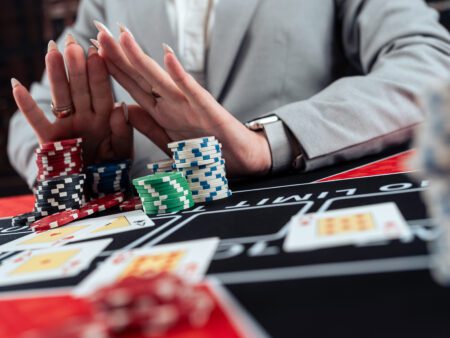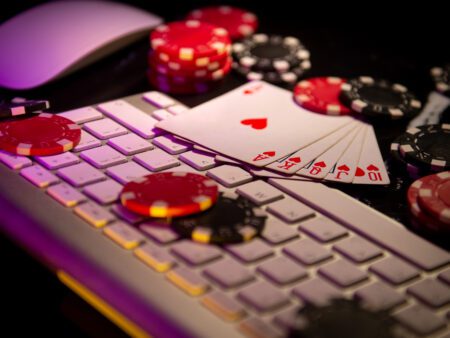Unravel why we take risks in gambling and dive deep into the psychological aspects that play a significant role in this behavior. Discover what makes online gambling an adrenaline rush experience.
What Makes Us Take Risks? The Psychological Thrill of Gambling
Ever sat down at a poker table, straight-faced, clutching a pair of twos while mentally wagering a gut feeling against a pile of chips? Or maybe, you’ve felt a rush of adrenaline as you pressed the ‘spin’ button on an online slot machine, waiting for those images to align. No matter the game, there’s a common thread tying all gamblers together: risk. The big question is, why? Why do we take these risks?
There’s something about the thrill of uncertainty that makes our hearts pound, our palms sweat. It’s a feeling, an experience, that’s deeply anchored in our psychology. In fact, research suggests that the human brain is wired to enjoy unpredictability. With that in mind, let’s delve deeper into the psychological realms of gambling.
Decoding the Risk-Taking Behavior
One probable explanation for our risk-taking behavior in gambling is the Sunk Cost Fallacy. It’s a fascinating, yet common psychological trap where we continue a behavior or endeavor as a result of previously invested resources (time, money, or effort). The longer we hang in there, the harder it becomes to let go, and so we keep raising the stakes.
Interestingly, the Sunk Cost Fallacy doesn’t act alone. There’s another psychological phenomenon at play, called the ‘Gambler’s Fallacy’. Ever found yourself thinking, “I’ve lost so many times, I’m due for a win any moment now.”? That, my friend, is the Gambler’s Fallacy in action. It’s a mistaken belief that if something happens more frequently than normal during a period, it will happen less frequently in the future, or vice versa. However, any seasoned gambler will tell you that luck doesn’t work on a schedule.
The Role of Dopamine
Known as the ‘feel-good’ neurotransmitter, dopamine also throws its weight around in the ring of gambling psychology. To put it simply, this little chemical messenger is responsible for making us feel pleasure. When gambling, each win triggers a surge of dopamine, making that win feel incredibly rewarding, and this sheer elation is hard to forget.
The interesting part is that dopamine doesn’t just respond to the reward itself, but also the anticipation of it. It’s the prospect of landing a big win, the potential payoff, that fuels our desire to gamble. Each spin, each roll of the dice offers a dopamine hit, continually reinforcing the behavior of gambling.
Staying in Control
With the knowledge of the Sunk Cost Fallacy, the Gambler’s Fallacy, and the seductive role of dopamine, it becomes crucial to have strategies for staying in control. A healthy approach is understanding that gambling is primarily about entertainment, not income. Setting boundaries on time and money, restraining oneself to stick to these limits, and occasionally reminding oneself that ‘the house always has the upper hand’, can foster responsible gambling.
It’s also worth noting that if the fun fades and you feel you’re losing control, it’s time to seek help. Remember, there is no shame in reaching out, and numerous resources and organizations are ready to assist.
The Thrill of the Chase
So, what makes us gamble? Is it just the thrill of risk and unpredictability, or is it the chase of dopamine rushes? Perhaps, it’s a combination of all these elements. The intricate psychology behind gambling and its potential to sway rational thought is certainly fascinating, serving as a reminder that our brains are complex and forever influencing our actions and decisions.
Whether you’re a ‘high roller’ or an occasional player, here’s to hoping that your gambling adventures are enjoyable, exciting, and most importantly, within your control.










